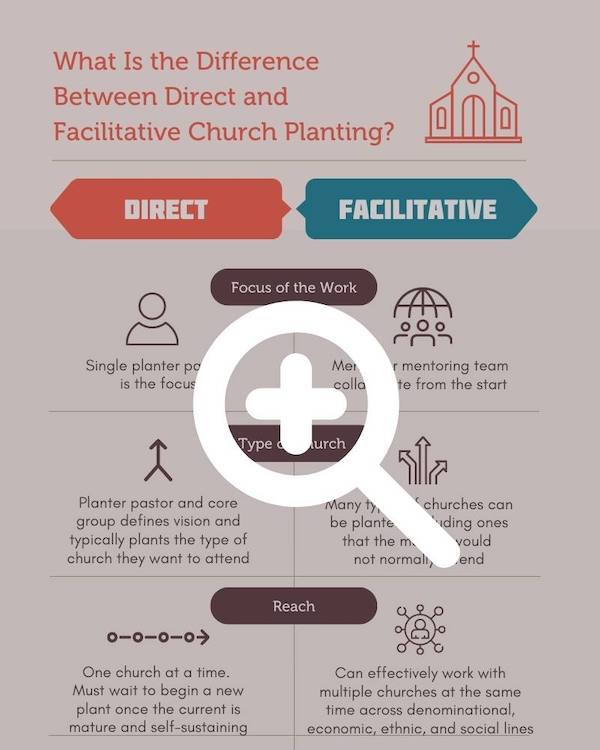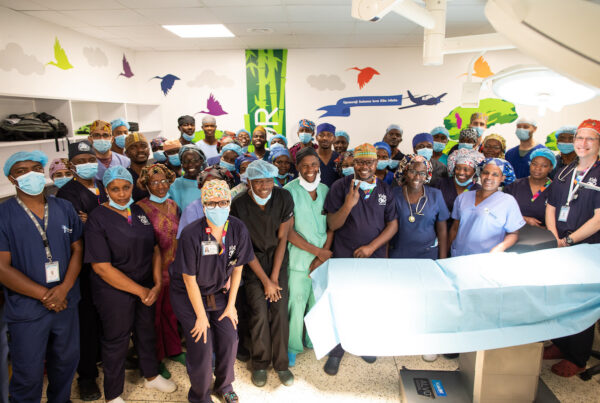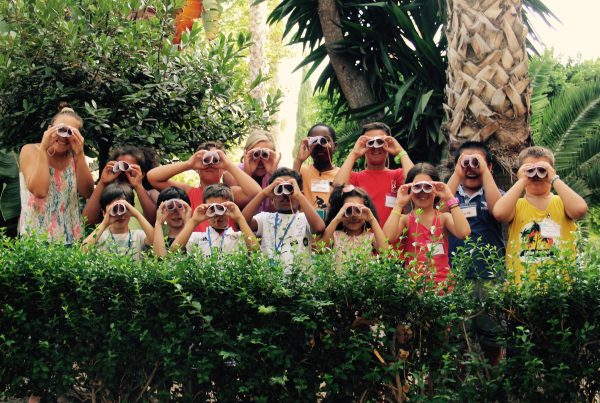God’s mission is global–but it takes place in the context of local communities. New believers need to hear the Word and see the gospel in action through Christ-centered community. Furthermore, it’s in the context of the local church that all believers are brought to maturity in Christ.
This is why, at Serge, we are passionately committed to establishing vibrant, biblical, local churches among all people groups as a foundational part of God’s plan of redemption.
As Serge missionaries first set out to plant new churches around the world, we learned very quickly that every community and culture is different.
We began to ask ourselves, in order to plant healthy congregations in different contexts, is a traditional church planting strategy our only or even our best option? If the Great Commission calls us to plant new churches – might there be multiple ways to accomplish that task?
Since we’re interested in reaching unreached people groups, as well as people in “reached” cultures where gospel devotion dwindles, we needed to broaden our approach.
One Mission, Two Different Opportunities
To create wider movements of grace, we saw the need to not only plant new churches through traditional, direct church planting but to also equip and empower others through what we call facilitative church planting.
In the world of missions, the word facilitation has been defined broadly and varyingly, which can be confusing. Here’s how we see the difference between these two approaches:
Direct Church Planting
Where there are few local churches or pastors in a people group, a cross-cultural planting pastor may be needed to start a church plant locally. A gifted leader gathers, preaches, leads, and grows the new work. This is often referred to as direct church planting.
Serge has seen this happen in immigrant communities in London, where Serge missionaries have worked in culturally diverse neighborhoods (with people primarily from unreached backgrounds) for more than 20 years.
We’ve also seen it happen on the hard ground of places like secular Europe. In Spain, Prague, and the U.K. where atheism and agnosticism are dominant, we start churches with a desire to reach people of diverse national and spiritual backgrounds who have heard little about faith in Christ.
By directly planting new international and bi-lingual churches, we give people opportunities to learn about Christianity in their own tongue, and experience church life shaped by their own culture. We create a space where locals feel comfortable exploring the Christian faith.
“I appreciate the heart that Serge has for church planting, recognizing that in many of the spiritually dark places of the world (like post-Christian Europe), planting new churches is one of the best ways to reach new people. We’ve seen that first-hand, as we sent out 18 adults in 2017 to plant our bilingual church, which now averages around 60 people on a Sunday. Prague is becoming more and more diverse over the years, and it’s been a blessing to be able to foster the multicultural fellowship that takes place here. Our newest church members have come from the U.S., Czech Republic, Korea, and South Africa, and other places in Europe.” –A Serge Church Planter in Prague
Facilitative Church Planting
But what about places where planting a church directly is not a viable option, or it isn’t the best option?
In those cases, we take a different approach. We help start new churches by sending gifted cross-cultural disciplers to come alongside as mentors and catalysts, to help national church planters start and grow the work God has called them to do. We call this facilitative church planting.
In the past, missionaries tended to rely on a one-sided, unilateral approach to church planting. But in an increasingly multicultural and interconnected world, international missionaries and local church leaders must work together.
Facilitative church planting works through coaching, resourcing, and helping national planters develop effective strategies appropriate to their unique context.
This way of church planting is a practical approach in places where it’s illegal to openly do missionary work. In these “restricted fields,” mentoring may be the only church-planting option we have among the people God has called us to serve.
We also see it work well in places like Ireland, Japan, and Latin America, where there are national church leaders with limited resources currently doing church planting. Coming alongside these church planters requires trust-building and partnership, in order to resource and encourage them in planting gospel-centered churches.
In these cases, we want to empower and resource national church planters–enabling them to succeed in the ministry God has given them. This ensures that national church leaders own the church planting from the start, and it also avoids the danger of planting “cultural” churches patterned after the sending culture instead of reflecting the host culture.
This approach also gives more freedom to the cross-cultural church-planting mentor, enabling them to lead by influence, without bearing the full weight of responsibility of being the up-front leader of the church plant. And enabling them to work with multiple churches at a time across denominational, economic, ethnic, and social lines.
As we began mentoring and building trust with national church planters, we discovered there was a real dearth of mentors and coaches in their lives and ministries. These couples were hungry for input from older, wiser, experienced church planters who could come alongside them to engage their hearts and encourage them in their ministries.
“Serge staff managed to not tell us how it’s done, and I think this was really crucial. Often ex-pat missionaries come over and assume that they’re going to explain how it’s done to the Irish church planter. Serge managed to not do that but simply came alongside as a support and an encouragement where we didn’t have many role models. With Serge, I found there were people with whom I could relate.They understood what was involved in the process, even though they were coming from a very different cultural context. I knew more of the Irish way of thinking, but they did know about church planting. That interaction with Serge staff who were mentoring and helping me has been so helpful over the years.” – Craig Maiden, Irish Church Planter
Serge teams recognize that we are called to something greater — a partnership between equals. When this is accomplished, the church grows and becomes an attractive image of the healing, reconciling nature of the gospel.
For a quick visual on the key differences and impact of Direct and Facilitative Church Planting, here is a helpful infographic.
Increasing Our Ability to To Reach the Nations
If our only strategy was direct church planting, we would be limited in our pursuit of church multiplication by the number of Serge church-planting pastors we could recruit.
But recruiting cross-cultural mentors of national church planters, we can have a greater role in church-multiplication movements around the world. We believe that we need both types of church planting for a valid and practical outworking of the gospel.
In all our church planting efforts, we take a gospel and Kingdom-centered approach. Through people-focused ministry, we want to truly love people well throughout the entire process, whatever form it may be.
It’s important for the planter or the mentor alike to work hard to cross the cultural divide between their sending culture and their host cultures to truly become helpful within their new cultural context.
As we’ve broadened our work in both direct and facilitative methods, we’ve seen the opportunities open up beyond “traditional” church planting roles.
And once we become known as a resource — and not people interested in taking over ministry – we often get more requests than we can handle!
We have a great need for more people to bring diverse gifts and varied backgrounds to this ministry:
Opportunities for Women:
Historically, women on the mission field have had limited roles in traditional church-planting ministries. But in facilitative church planting, more ministry options open. In fact, in some regions, women are more readily welcomed into a community and are at the forefront of creating trust, caring for church-planting couples, and serving as Sonship mentors.
Opportunities for Lay People versus Ordained Personnel:
In Facilitative Church Planting, there are definitely times when people with seminary degrees use their knowledge and training to meet a particular need. However, much of the ministry we engage in to serve the church is equally doable by everyone on our team, regardless of theological training.
Opportunities for Short and Long-Term Workers:
When churches host a training or discipleship course, it’s often “all hands on deck” to cover all the teaching and personal mentoring. No full-time worker on a team has all the gifts to accomplish this by themselves. We need both short-term apprentices and interns to serve alongside church leaders.
In Ireland, every summer we train and equip summer interns to help serve in a local church/ministry setting. Short-term apprentices come alongside our teams, helping them split up into several outreach teams to serve local churches and ministries.
Together, we lean into each other’s gifts and experiences. And sometimes the more significant changes we see the Holy Spirit do in our contexts come through these relationships.
Opportunities for Pastors:
Facilitative Church Planters:
Some church planting mentors, like the Apostle Paul, may be able to help multiple church planters in various places, leaving the particulars to the local leaders who have the gifts to form the congregation. Others, like Barnabas, come alongside a local, national church leader and support him over the long haul.
Serge is looking for workers who have church-planting experience, and are willing to facilitatively come alongside the church planting efforts of national church leaders. It’s also good for these potential workers to understand that this is accompanied by a personal loss of their own direct ministry role. Learning to live with the tension between serving national church planters in their ministry and directly exercising your own gifts is a helpful paradigm – especially for those who come with a wealth of pastoral or planter experience.
Direct Church Planters:
We are also looking for those with patient hearts, willing to lay themselves down for Christ’s glory in the ground-breaking work of starting and growing new churches in communities where there isn’t any identifiable gospel witness.
This is more direct ministry that provides an opportunity for listening, learning, cultivating relationships with community neighbors, and investing deeply in new Christians. New work is often slow –it looks like meeting people in coffee shops, steadfast community outreach, bible studies, local partnership, and serving the community through acts of tangible service. Depending on the stage of the church plant, it may mean an opportunity to establish new ministries of outreach, mercy, and discipling that align with your own interests and experience.
————
Whether you feel led to plant new churches directly or on a team of like-minded mentors, and whether members of your team are focused on a single church or engaged across several churches – it’s a priority for us to send workers as teams with a shared vision so that each one’s work is strengthened by the gifts and efforts of others.
If you would like to plant churches or mentor and disciple national pastors and church planters, either in the developing or developed world, we have a range of opportunities for you to pursue.
View Overseas Church Planting Opportunities






